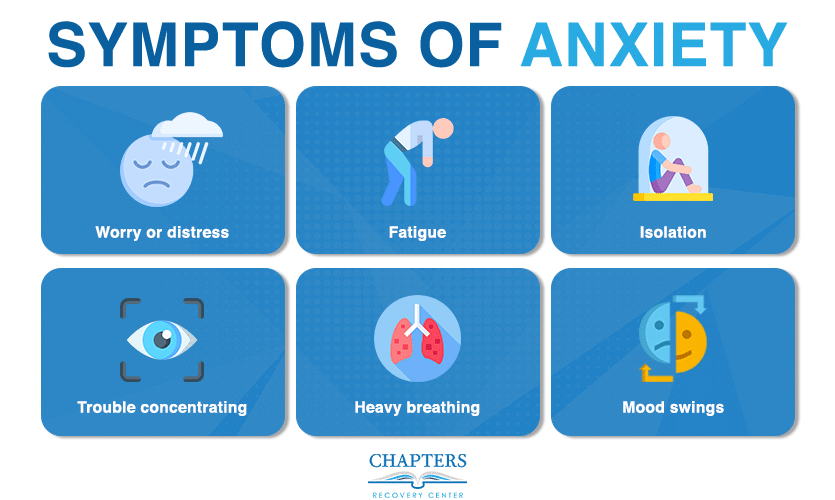In the fast-paced world of biotechnology, stress is often an unavoidable part of the job. From the pressure to innovate to the demands of meeting tight deadlines, employees in this sector are no strangers to stress. While stress is a natural response to challenging situations, it becomes problematic when it leads to unhealthy coping mechanisms like excessive alcohol consumption. This comprehensive guide aims to shed light on the intricate relationship between stress and alcohol use, particularly in the high-stakes environment of the biotech industry. We’ll explore the types of stress, why people may turn to alcohol to cope, and the potential dangers of this habit. We’ll also delve into the roles and responsibilities of both employers and employees in addressing this issue and offer actionable steps for those who find themselves caught in the stress-alcohol cycle.
What is Stress: A Basic Understanding
Stress is a natural physiological and psychological response to situations that demand some form of adaptation or change. It’s the body’s way of rising to a challenge and preparing to meet a tough situation with focus, strength, and heightened alertness. However, not all stress is bad. In small doses, stress can help you perform under pressure and motivate you to do your best. But when you’re constantly running in emergency mode, your mind and body pay the price. In the biotech industry, where the stakes are often high and the work is demanding, understanding the nuances of stress is crucial for both employers and employees.
Types of Stress: Acute, Chronic, and Episodic
- Acute Stress: This is the most common form of stress and is usually short-term. It’s the kind of stress you might feel before a meeting, a presentation, or while making a tough decision. Acute stress is often momentary and can even be beneficial, sharpening your senses and focus. However, too much acute stress can lead to psychological distress, bodily harm, and, in extreme cases, burnout.
- Chronic Stress: This type of stress is long-term and is often the result of ongoing situations or problems. Chronic stress can be detrimental to your health, leading to issues like heart disease, high blood pressure, and mental health disorders. In a high-stakes field like biotech, chronic stress can be a serious concern.
- Episodic Stress: Some people seem to experience acute stress over and over. This is known as episodic stress. It can be caused by a series of ongoing challenges or a chaotic lifestyle. Episodic stress can lead to the same health concerns as chronic stress and may require intervention to resolve.
The Physiological Effects of Stress
When you encounter a perceived threat, your body’s stress response kicks in. This is often referred to as the “fight or flight” response. Physiologically, a series of events occur: adrenaline is released, heart rate increases, and blood is redirected to essential organs and muscles. While this response is designed to help us in emergency situations, constant activation due to ongoing stress can lead to wear and tear on the body, known as “allostatic load.” Over time, this can result in serious health issues, including heart disease, hypertension, diabetes, and even impaired cognitive function. For professionals in the biotech industry, where stress is often part and parcel of the job, being aware of these physiological effects is the first step in managing them effectively.
The Stress-Alcohol Connection: A Coping Mechanism
One of the most common reasons people turn to alcohol when stressed is for its sedative effects. Alcohol can produce feelings of relaxation and euphoria, providing temporary relief from the emotional and physical symptoms of stress. In the high-pressure environment of the biotech industry, where long hours and intense scrutiny are common, the temptation to use alcohol as a coping mechanism can be particularly strong. However, it’s essential to understand that while alcohol might offer short-term relief, it doesn’t solve the underlying issues causing stress and can lead to a range of health problems if consumed excessively.
The Biochemical Link: Stress Hormones and Alcohol
Stress triggers the release of various hormones, including cortisol, known as the “stress hormone.” Research has shown that cortisol can stimulate areas of the brain associated with substance use and pleasure-seeking behaviors. This biochemical reaction can make individuals more susceptible to the allure of alcohol as a quick fix for stress relief. In a field like biotech, where the stakes are often high and the work can be grueling, understanding this biochemical link can be crucial for both employees and employers in managing stress and alcohol use responsibly.
The Social and Cultural Factors: Drinking as a Norm
In many professional settings, including the biotech industry, alcohol consumption is often socially encouraged, especially during networking events, conferences, and team-building activities. This social acceptance can make it easier for individuals to turn to alcohol as a way to manage stress, as it is not only readily available but also culturally normalized. However, this normalization can be dangerous, as it may lead to habitual drinking as a stress management strategy, which can result in long-term health issues and potential dependency.
The Stress-Alcohol Connection
According to a study published in BMC Psychology, stress is a significant factor contributing to alcohol use disorders (AUD). The study, titled “Underlying mechanisms in the relationship between stress and alcohol consumption in regular and risky drinkers (MESA),” explores the complex relationship between stress and alcohol use. It suggests that understanding this relationship is crucial for developing effective interventions (Wittgens et al., 2022).
The Role of Stress in the Biotech Industry
Stress is an inherent part of any high-stakes industry, and the biotech sector is no exception. The pressure to innovate, meet deadlines, and produce results can be overwhelming. Add to that the complexities of clinical trials, regulatory hurdles, and the ever-present need for funding, and you have a recipe for high stress.
The Importance of Early Intervention
The MESA study emphasizes the need for early intervention to identify high-risk individuals at an earlier stage of alcohol consumption. This is crucial for reducing both individual and societal burdens and implementing effective interventions to prevent further progression.
Identifying High-Risk Individuals
Companies can implement screening programs to identify employees who may be at risk of developing AUDs. These programs can be part of a broader wellness initiative and can include confidential self-assessment tools and professional consultations.
The Role of Employers
Employers have a significant role to play in mitigating the stress-alcohol cycle. A proactive approach can include several strategies:
- Flexible Work Arrangements: Allowing employees to have more control over their work schedules can reduce stress, thereby potentially reducing the urge to consume alcohol as a coping mechanism.
- Mental Health Support: Offering mental health support, either through in-house counselors or external partnerships, can provide employees with the tools they need to manage stress effectively.
- Educational Programs: Employers can offer seminars and workshops on the dangers of excessive alcohol consumption, particularly how it can become a problematic coping mechanism for stress.
- Employee Assistance Programs (EAPs): EAPs can offer confidential assessments, short-term counseling, and referrals to help employees deal with stress, substance abuse, and other personal issues.
- Mindfulness and Stress Management Programs: Mindfulness programs can help employees become aware of their thoughts and feelings and make more conscious choices about their health, including alcohol use.
The Culture of Alcohol in Biotech Conferences
Conferences are a staple in the biotech industry for networking, learning, and collaboration. However, these events often center around social activities that include drinking. For those who are already dealing with stress, the abundance of alcohol can be both a temptation and a potential problem.
Navigating the Conference Scene
- Set Boundaries: Decide in advance how much you’ll drink and stick to it.
- Alternative Activities: Look for networking opportunities that don’t involve alcohol.
- Accountability: If possible, have a colleague or friend help you stick to your boundaries.
The Biotech Industry: A Case Study on Blueprint Medicines
Located in Cambridge, MA, Blueprint Medicines is a global precision therapy company that has implemented a comprehensive wellness program for its employees. Their “Lifestyle Spending Account” program funds employees’ everyday wellness needs that traditional benefit plans may not cover. This initiative is a step in the right direction for addressing stress and its potential to lead to substance abuse (The Muse).
The Pharmaceutical Industry: A Case Study on Johnson & Johnson
Johnson & Johnson is another industry leader that has taken significant steps to address mental health. They have initiated programs to improve access to mental healthcare in underserved regions and are researching treatments for mental health conditions. Their focus on workplace mental health is particularly noteworthy, as they have developed a report offering strategies to create a mental health-friendly workplace.
Johnson & Johnson’s Global Mental Health Initiatives
Johnson & Johnson has been a pioneer in addressing mental health issues on a global scale. One of their most impactful initiatives is a comprehensive pilot partnership with the Government of Rwanda to expand access to quality mental healthcare. This program focuses on schizophrenia and aims to create a platform for patients to have access to long-acting injectables, which are particularly helpful for those who don’t have frequent access to medical care.
The company has also partnered with nonprofit Partners In Health to train a new generation of mental healthcare professionals. Early results indicate not only an improvement in patients’ symptoms but also a positive economic impact, as patients have missed fewer workdays. This initiative is a prime example of how pharmaceutical companies can play a significant role in addressing mental health issues, which are often linked to stress and, consequently, alcohol use.
Technology’s Role in Mental Health Care
Another noteworthy aspect of Johnson & Johnson’s mental health initiatives is the use of technology. In collaboration with the Rwandan Ministry of Health and digital technology company Viamo, they developed a mobile phone training platform. This platform educated almost 60,000 community healthcare workers in just a few months, a feat that would have taken years if done through traditional methods.
The training covers early signs of mental disorders, best practices for mental health first aid, and guidance on when to refer patients for additional care. This technological approach could be a game-changer for the biotech and pharmaceutical industries, where stress levels are high, and the risk of alcohol use as a coping mechanism is significant. By leveraging technology, companies can provide timely and effective mental health resources to their employees, no matter where they are located.
Workplace Mental Health: A Priority for Johnson & Johnson
Johnson & Johnson is not just focusing on global initiatives; they are also committed to improving mental health in the workplace. They collaborated with the American Heart Association and other CEOs to release a groundbreaking report, “Mental Health: A Workforce Crisis,” which offers seven expert-certified strategies to create a mental health-friendly workplace.
The report is a call to action for employers in the biotech and pharmaceutical industries to take mental health seriously. Given the high-stress nature of these sectors, implementing such strategies can go a long way in reducing stress and its associated risks, including alcohol use. Johnson & Johnson’s commitment to mental health serves as a model for other companies in these industries to follow.
Self-Assessment: Recognizing the Signs of Stress-Induced Alcohol Consumption
Frequency and Quantity: The First Signs of Alcohol Dependency
If you’re in a high-stress profession like the biotech industry, you might find yourself reaching for a drink more often than you used to. Are you drinking daily now, when it used to be just on weekends? Are you consuming multiple alcoholic beverages in one sitting? The increase in frequency and quantity can be subtle but is often the first sign of developing a reliance on alcohol to manage stress.
Deep Dive: Consider keeping an alcohol consumption diary. Note down each time you have a drink, the amount you consume, and what triggered the urge to drink. This self-monitoring can provide valuable insights into your drinking patterns and triggers, helping you make informed decisions about your alcohol consumption.
Emotional Reliance: When Alcohol Becomes a Coping Mechanism for Stress
If you find yourself mentally counting down to your next drink or if alcohol becomes the highlight of your day, that’s a significant red flag. Emotional reliance on alcohol to “take the edge off” stress or to numb negative emotions can lead to a vicious cycle, especially in high-stress jobs like those in the biotech sector.
Deep Dive: Ask yourself, “What am I trying to escape?” Identifying the underlying emotional triggers can help you seek healthier coping mechanisms for stress management.
Impact on Daily Life: When Alcohol Affects Work Performance and Relationships
When your drinking starts to interfere with your work, relationships, or health, it’s a glaring sign that something needs to change. Are you missing deadlines, neglecting family, or experiencing health issues like sleep disturbances or weight gain?
Deep Dive: Conduct a life audit. Take a hard look at different areas of your life, especially your work performance and relationships, and assess how your drinking might be affecting them. This can be a wake-up call to take action.
Physical Symptoms: Recognizing Withdrawal Symptoms
Withdrawal symptoms like headaches, irritability, or nausea when you haven’t had a drink are clear indicators of physical dependency.
Deep Dive: Monitor your body’s reactions in the hours after drinking. If you experience withdrawal symptoms, it’s crucial to consult a healthcare provider for a proper diagnosis and treatment plan.
Taking the Next Steps: How to Manage Stress and Alcohol Consumption in High-Stress Professions
Consult a Healthcare Professional Specializing in Addiction
The first and most crucial step is to consult a healthcare provider for a professional diagnosis and treatment plan tailored to your needs.
Deep Dive: Don’t just consult any doctor; seek one who specializes in addiction or behavioral health. They can provide targeted treatment options, which may include medications, therapy, and detox programs.
Utilize Employer Resources: Employee Assistance Programs in the Biotech Industry
Many companies in the biotech industry offer Employee Assistance Programs (EAPs) that provide confidential consultations and resources for mental health and substance abuse.
Deep Dive: EAPs often offer a range of services, from counseling and legal advice to financial planning. Make sure to fully explore these options and utilize them to their fullest extent.
Build a Support Network: Emotional Support for Stress Management
Emotional support is crucial when you’re trying to make significant life changes. Open up to trusted family members, friends, or even online communities that can offer support and advice.
Deep Dive: Consider joining a support group or a community organization focused on sobriety. The shared experiences can offer invaluable insights and the collective strength can be empowering.
Seek Alternative Coping Mechanisms: Healthy Ways to Manage Stress in the Biotech Industry
Work on finding healthier ways to cope with stress. Exercise, meditation, and counseling are all excellent alternatives.
Deep Dive: Experiment with different stress-relief techniques to find what works best for you. Whether it’s yoga, mindfulness, or a new hobby, the goal is to find a sustainable and healthy way to manage stress.
When Professional Help is Needed: Reaching Out to Chapters Recovery
Sometimes, despite the best efforts of both employers and employees, professional intervention becomes necessary. If you or someone you know is struggling with stress and alcohol use, it may be time to seek specialized help.
Chapters Recovery offers a range of services tailored to help individuals navigate the complexities of stress and substance abuse. With a team of certified professionals, they provide a holistic approach to recovery, focusing on both mental and physical well-being. Their programs are designed to equip you with the tools you need to manage stress effectively and make healthier choices regarding alcohol use.
Don’t let stress and alcohol dictate the quality of your life or career. Reach out to Chapters Recovery to take the first step towards a healthier, more balanced life.







